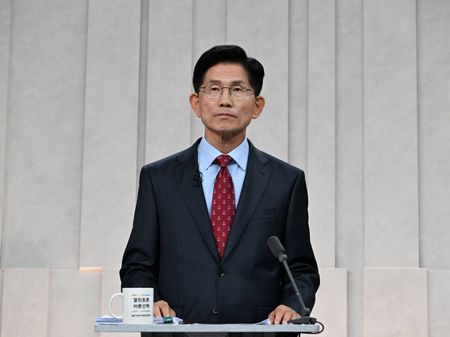By Riham Alkousaa and Matthias Inverardi
BERLIN (Reuters) -Germany’s antitrust authority urged stronger regulation of price quotations used in the oil market on Wednesday after an examination showed pricing based on limited data which was vulnerable to manipulation, it said.
Price quotations are usually linked to wholesale procurement contracts and can indirectly influence retail prices. They are provided by price-reporting agencies such as S&P Global Commodity Insights (Platts) and Argus Media, based on reported transactions.
“Participants across global market trust in Argus’ independent status and rely on the price transparency Argus provides,” an Argus spokesperson said on Thursday.
“Adherence to the IOSCO Price Reporting Agency (PRA) principles, which are recognised by regulators around the world, ensures an internationally accepted robust compliance framework, free from conflicts of interest.”
S&P Global Commodity Insights (Platts) did not immediately respond to Reuters’ request for comment.
However, the cartel office investigation found that in some cases a small number of market participants dominated the reporting process, raising concerns about potential price manipulation.
“According to the investigations, there are incentives and opportunities to influence individual price quotations in an anti-competitive manner,” the report read.
The Federal Cartel Office launched its investigation in 2022 into Germany’s refinery and wholesale fuel market in response to price developments following Russia’s invasion of Ukraine.
The two-stage inquiry examined refinery-level pricing, fuel imports, supply chains, and market behaviours, aiming to enhance competition and improve price transparency.
“The investigations have once again shown that the conditions for functioning competition in the mineral oil sector in Germany are difficult,” Cartel Office head Andreas Mundt said in a statement.
Germany’s Economy Ministry declined to comment.
Michaela Westrup, an antitrust lawyer at Reed Smith, said the Cartel Office has new powers since 2023 which allow the agency under certain conditions to intervene even when no clear antitrust violations exist but structural market distortions are evident.
Westrup said oil pricing was a particular concern in Germany following Russia’s invasion of Ukraine when prices initially surged and later dropped globally, as retail fuel prices remained high in Germany despite falling wholesale costs.
“(The Cartel Office) will certainly take a closer look itself and could carry out an investigation of individual players,” Westrup told Reuters.
The competition watchdog recommended on Wednesday stricter legal requirements on price quotations and exploring ways to better protect them from manipulation, adding that it was also considering taking action itself.
It said it was also concerned about the increasing number of price changes at petrol stations. By the beginning of 2024, prices were changing around 18 times a day, up from four to five changes a decade earlier, it said, making it difficult for consumers to make decisions.
(Reporting by Riham Alkousaa and Matthias Inverardi; Additional reporting by Christian Kraemer; Editing by Lisa Shumaker and Elaine Hardcastle)










